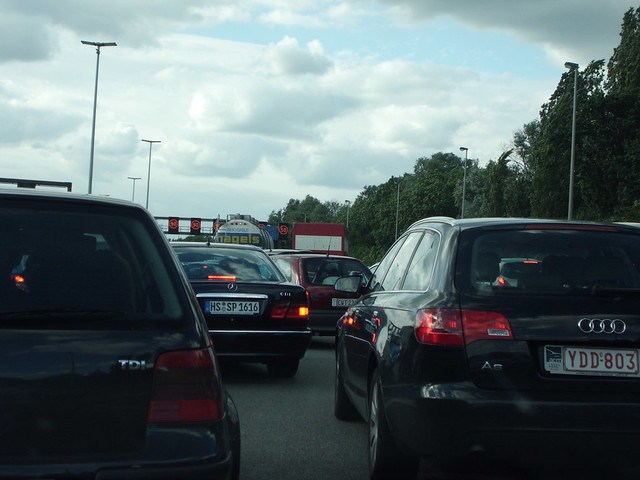The levels of noise in cities across Belgium and Europe regularly surpass the frequencies considered as healthy, according to city statistics.
Residents of Belgian cities, such as Brussels, Ghent, and Antwerp, have become so used to high noise levels that they often are not aware of the negative impact noise pollution has on health.
Noise is unhealthily loud when it goes above an average of 53 decibels per day, according to the standards of the World Health Organisation (WHO).
In 2016, 142,000 people in Antwerp were exposed to an average noise level of more than 55 decibels, reports New Mobility.
In 2017, 431,000 people in the Brussels Region were exposed to noise levels between 65 and 75 decibels according to the Brussels Environment Administration (BEA). A BEA survey carried out in the same year suggested that nearly half of Brussels residents feel the effects of noise on their health, reported Eltis.
In Paris, 9 out of 10.1 million residents are exposed to noise levels that exceed WHO standards.
High noise levels cause the body to increase blood pressure, produce adrenaline and stress hormones, and accelerate the heart rate. Research from the WHO suggests that noise pollution can be linked to cardiovascular disease, stress as well as insomnia.
Hidden noises, such as those with a frequency of 20 hertz, have a similarly negative impact on public health. The “most harmful hearing problems are even caused by tones that we cannot hear” says the Professor of Audiology at the University of Ghent, Bart Vinck. He continued to say that “they have an immediate impact on the heart, veins, and even lungs”.
Evie McCullough
The Brussels Times

